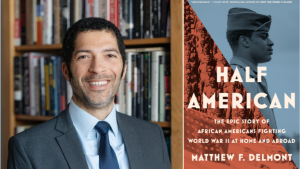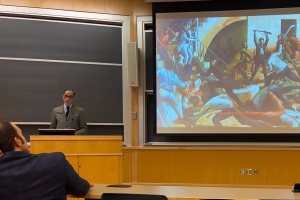
- About
- Departments & Programs
- Faculty Resources
- Governance
- Diversity
- News
Back to Top Nav
Back to Top Nav
Back to Top Nav
Back to Top Nav
Newly published research that economics professor Paul Novosad began working on with Charlie Rafkin '16 when Rafkin was an undergraduate at Dartmouth illuminates an alarming connection between education level and health decline.
Research that economics professor Paul Novosad began working on with Charlie Rafkin '16 when Rafkin was an undergraduate at Dartmouth illuminates an alarming connection between education level and health decline.
Newly published in American Economic Journal: Applied Economics with coauthor Sam Asher of Imperial College London, their paper, "Mortality Change Among Less Educated Americans," demonstrates through a new statistical model that Americans with less than a high school education experience significantly higher mortality rates than those who are more educated.
"We know that mortality has risen among white Americans with a high school education," Novosad says. "But many researchers speculated that a big chunk of this was just an artifact of the changing composition of the population getting high-school educated. This was a major problem making it hard to tell what was happening to people at the bottom of the education distribution."
"Our paper points out that there is a true mortality crisis among some of the most disadvantaged members of society, and it is even more concentrated than we previously could conclude," says Rafkin, who is now a fifth-year PhD student in economics at MIT.
The findings also show a divergence of mortality rates between more and less educated people of other races. "In short," Novosad says, "the least educated Americans are experiencing a major health decline relative to the more educated, in all groups."
Formative Undergraduate Research
A math major at Dartmouth, Rafkin became interested in economics research when he was an intern at the Brookings Institution during his junior year. Upon his return to campus he served as a Dartmouth Economics Research Scholar, a program run by the Department of Economics that enables students to collaborate with faculty on research projects through mentoring, workshops, and other out-of-class enrichment activities.
The program introduced Rafkin to Novosad, whose research on developing countries examines what policy interventions can help improve people's lives.
Novosad included Rafkin in a project that documents trends in upward mobility in India based on educational attainment from the 1950s to the present. He also introduced Rafkin to fellow development economist Asher, who ultimately collaborated with Novosad and Rafkin on two research papers—and became a second mentor to Rafkin.
During Rafkin's senior year, the three collaborated on an early draft of the resulting paper for a conference.
"I really enjoyed the craft of writing up a research project," Rafkin says. "Paul taught me so much about economics research and data science—everything from how to clean and process data, to how to conduct initial analyses to test hypotheses, to how to make compelling figures to highlight your findings, and how to write up a draft in a clear and rigorous way."
At the same time, Rafkin felt empowered to bring his own skills and ideas to the table. "From the beginning of our work together, Paul was very receptive to my ideas, despite how new I was to economics," Rafkin says. "Over time, I became more confident expressing my ideas, especially when it came to statistical issues or analysis."
In turn, Novosad found that Rafkin's areas of expertise strengthened their research. "Charlie was a math major, and he was able to bring his complementary skills into the project to great effect," Novosad says. "We ended up adding a substantial theoretical component to the project which we would definitely not have done without him. This generalized our new methods, making them easier to apply to other projects."
Implications for Public Policy and Future Research
Rafkin, Novosad, and Asher's work together illuminate opportunities to change outcomes for vulnerable populations, with findings designed to inform public policy.
"Policymakers are broadly interested in achieving equality of opportunity and addressing worrisome trends in mortality," Rafkin says.
Novosad sees opportunities for future research in understanding mortality rates in the context of the COVID-19 pandemic, including so-called "deaths of despair" from alcohol poisoning, drug overdoses, or suicide.
The "Mortality Change" paper's new statistical method also offers a tool for future research. "Identifying who is at the bottom of the education distribution over time is difficult, because society has been getting more years of education over time," Rafkin says. "Our new method lets us make apples-to-apples comparisons here, and we hope that method can be useful for other researchers."
The three scholars are already using the research method in their second paper together, on intergenerational mobility in India—demonstrating its broad applicability and utility.

